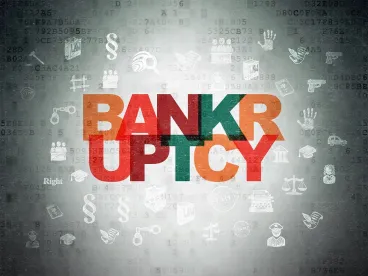In an important decision for debtors and creditors alike, the United States Bankruptcy Court for the District of Delaware has ruled that provisions in a limited liability company operating agreement, granting the company’s lender absolute power to prevent the company from filing a bankruptcy petition are unenforceable as against public policy. In re: Intervention Energy Holdings, LLC, 2016 WL 3185576 (Bankr. D. Del. 2016).
The facts involved in the case are straight-forward. The debtors—a parent limited liability company and its subsidiary—found themselves in financial straits compelling them to seek a forbearance agreement with their lender. The lender agreed to forbear, but only on the condition that the debtors amend their respective operating agreements to include a provision admitting the lender as a member of the parent and further requiring the unanimous consent of the members of the parent for any voluntary filing for bankruptcy by either the parent or the subsidiary. The debtors filed chapter 11 petitions without the consent of the lender, and the lender filed a motion to dismiss the petitions as filed without authority.
The bankruptcy court noted that the issue of whether debtors and creditors are free to contract away bankruptcy rights was one of first impression in Delaware. However, the court determined that it need not decide this issue, as it determined public policy considerations provided an alternate ground for its decision. The court concluded such a provision violates public policy and is unenforceable, stating its conclusion in the strongest of terms:
“A provision in a limited liability company governance document obtained by contract, the sole purpose and effect of which is to place into the hands of a single, minority equity holder the ultimate authority to eviscerate the right of that entity to seek federal bankruptcy relief, and the nature and substance of whose primary relationship with the debtor is that of creditor-not equity holder-and which owes no duty to anyone but itself in connection with an LLC’s decision to seek federal bankruptcy relief, is tantamount to an absolute waiver of that right, and, even if arguably permitted by state law, is void as contrary to federal public policy.”
The court relied on opinions from various courts to the effect that contractual provisions restricting the right to a bankruptcy discharge and the right to file bankruptcy are unenforceable as against public policy. Klingman v. Levinson, 831 F.2d 1291 (7th Cir. 1987) (“for public policy reasons, a debtor may not contract away the right to a discharge in bankruptcy.”). MBNA Am. Bank. N.A. v. Trans World Airlines, Inc. (In re Trans World Airlines, Inc.), 275 B.R. 712 (Bankr. D. Del. 2002) (“prepetition agreements purporting to interfere with a debtor’s rights under the Bankruptcy Code are not enforceable.”). In re Pease, 195 B.R. 431 (Bankr. D. Neb. 1996) (“the Bankruptcy Code pre-empts the private right to contract around its essential provision.”). The court believed such provisions would frustrate the object of the Bankruptcy Code and be repugnant to its purposes.
The concluded its opinion with the following strongly-worded language:
“Under the undisputed facts before me, to characterize the Consent Provision here as anything but an absolute waiver by the LLC of its right to seek federal bankruptcy relief would directly contradict the unequivocal intention of [the lender] to reserve for itself the decision of whether the LLC should seek federal bankruptcy relief. Federal courts have consistently refused to enforce waivers of federal bankruptcy rights.”
This decision, along with the recent decision of the U.S. Bankruptcy Court for the Northern District of Illinois in In re Lake Michigan Beach Pottawatamie Resort LLC, 547 B.R. 899 (Bankr. N.D. Ill. 2016), which found a similar provision violated applicable state corporate law, should be instructive to creditors’ counsel of the need to carefully craft these types of restrictive agreements in ways which comport with public policy and applicable state law.



 />i
/>i
